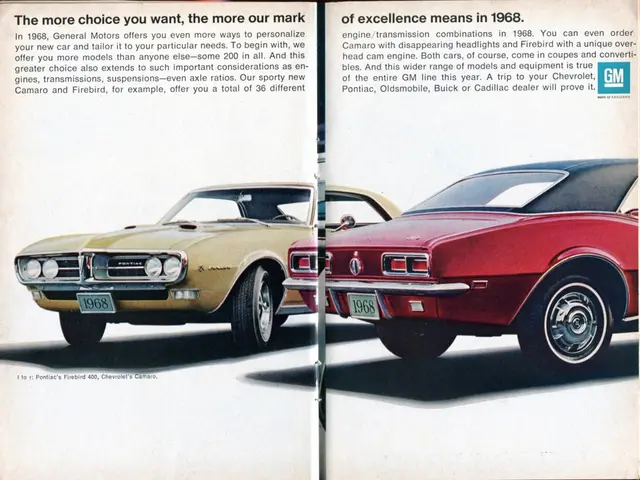People in Germany express a desire to increase their savings.
Reluctant Spending Trend Persists Amid German Consumers' Cautious Outlook
German consumers continue to exhibit caution in their spending habits as the nation's consumer climate remains weak. Market research firm, GfK, and the Nuremberg Institute for Market Decisions (NIM) forecast a moderate increase of 0.9 points for the consumer climate index in June 2025, rising to -19.9 compared to the previous month.
In a further analysis, GfK reported that consumers are less inclined to make purchases and more inclined to save, contributing to a dampened consumer sentiment. Although the consumer climate has reached its highest level since November 2024, it remains generally low compared to the long-term average. Rolf Bürkl, a consumer researcher at the NIM, attributes this weak climate to unpredictable trade and tariff policies, stock market turmoil, and concerns over three straight years of economic stagnation.
Despite these cautious tendencies, economists displayed skepticism about the sustainability of this slow recovery. Andreas Scheuerle of DekaBank underlined that the recent improvement in consumer sentiment has stagnated at the level recorded during the corona lockdown for about a year, which indicates a hesitant readiness for significant consumption increases. Alexander Krüger, chief economist of Hauck Aufhäuser Lampe Privatbank, echoed Scheuerle's sentiments, arguing that the consumer climate's turnaround might occur but is still premature to declare.
Chief economist Cyrus de la Rubia of Hamburg Commercial Bank also pointed out that population mistrust regarding the political effectiveness of the new government is prevalent, potentially dragging down private consumption growth in the second quarter, even though it is moving upward. Consumers' assessment of their own financial situation has not been as positive since October 2024, with improved wage agreements and ongoing price inflation improvements boosting purchasing power slightly. However, the declining inclination to make larger purchases highlights the reluctance of consumers to spend, despite enhanced income prospects.
The study was commissioned by the EU Commission and involved a total of 2,000 consumer interviews conducted between May 1 and 12, 2025.
Source: ntv.de, kfe/dpa/rts
- The reluctant spending trend among German consumers could be influenced by their personal-finance concerns, potentially impacting the implementation of community and employment policies that are reliant on consumer spending.
- Businesses might face challenges in their finance sector due to the cautious outlook of consumers, as the persistent spending caution may lead to reduced employment opportunities and, subsequently, weakened employment policies.




